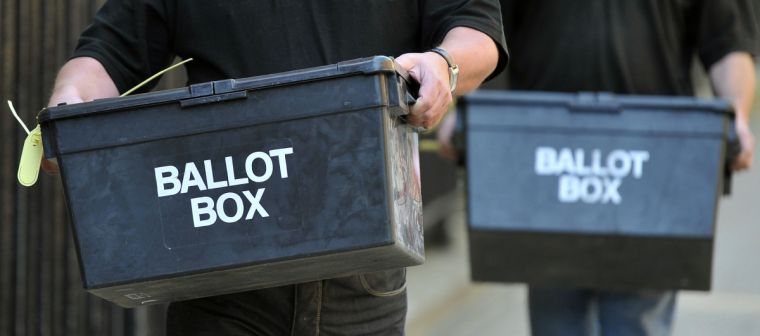I am an Evangelical. I voted Conservative. What's with all the hate?

I am an Evangelical. I voted Conservative. What's with all the hate?
Krish Kandiah's recent piece has helpfully and extremely practically articulated five ways in which Christians can care for the poor. Understanding, sacrificial service, hospitality, gleaning and prayer are all Christian virtues and practices which I believe we can all support and encourage of one another. I hope we'd want to be doing these things anyway, regardless of the government of the day.
Unfortunately the main argument in Krish's piece is based on conjecture. The key lesson which we learnt from this General Election is not to trust the polls! The report he references was an online survey conducted by the Evangelical Alliance eight months before the election. One suspects that this survey missed many of the so called 'shy Tories' and minds may well have changed in that eight month period. By Krish's own admission the link between those who thought the Coalition policies 'hurt the poor' and then voted Conservative was only anecdotal.
The result of the 2015 General Election was always going to be a Conservative or Labour led coalition, or an overall majority. There are all sorts of reasons why we might have voted for another party, but we all knew the realistic outcomes. So for the Christian voting it was always a case of a government based mainly on Conservative or Labour policies. However, Krish's question "Did our theology affect our vote?" presumes that a Labour vote was the best outworking of an Evangelical theology. I disagree, I voted Conservative and here are five key reasons why:
1. Religious Liberty
In the EA report, this came up as the top issue in affecting how evangelicals would vote (71%). While I'm concerned about some of the Conservative proposals on tackling extremism, I'm generally of the view that Conservative policies are more likely preserve the status quo in maintaining freedoms. Indeed the proposed Labour policies on combatting Islamophobia could have been deeply problematic for Christian liberty to be able to proclaim the uniqueness of Christ.
2. Moral Issues
One of the key roles of a government is to restrain evil and administer justice. While I don't think the Conservatives have a great track record on many moral issues, I believe that they retain a general conservatism which won't seek to make large leaps towards secularisation and will seek to protect and value human life. The Conservative government, by its approach to politics, will (I hope) restrain evil more than a Labour government would.
3. A strong economy is good for everyone
You can only have an NHS, schools, public services and benefits if you have a strong economy - it supports everyone. Around 88% of the UK population voted for a party which was offering 'austerity' as an approach to managing the economy - Conservative, Labour, UKIP and Lib Dem were all offering cuts - balancing the books, cutting the deficit are all synonyms for austerity. However you approach it, the economy is a difficult beast to manage and I wouldn't have trusted Miliband and Balls to manage it well, they tried once and failed spectacularly. In contrast, over the last five years the British economy seems to have performed better than other countries and is providing jobs for more and more people.
4. Employment is better than Benefits
There's certainly lots to say from the Bible about a Christian concern for the poor, but there's plenty too to say about the value of work, discouraging laziness and the value of earning a living. Encouraging those who can to get into work is good for them, for their families and for the economy and wider society. Breaking an unnecessary dependence on benefits and providing training, jobs and living wages is better and more Biblical than handouts. As it happens Labour don't have a great record on employment. My hope is that this Conservative government will help the country to live within its means, provide jobs, give economic security and work towards living wages which bring people out of in work benefit dependence.
5. Large states are bad for Christians
As a Christian I want the state to give me the freedom to proclaim the gospel and to do justice. A large state which seeks to redistribute wealth and interfere in many other aspects of life is dangerous. I don't want the state to dictate how I raise my children, spend my money or how I worship. A larger state will inevitably begin to impinge on Christian freedoms. Why do we assume that the best way for the government to care for the poor is through benefits, or that they have a moral imperative to redistribute wealth in this way?
Concern for the poor isn't the most important issue for the Christian, but it's certainly important. Expecting and relying on the state to be the primary carer of the poor is lazy Christianity while a view which puts benefits as the best route to helping the poor is lazy politics.
Hugh Bourne is an ordinand at Oak Hill College. He blogs at hughbo.com.











